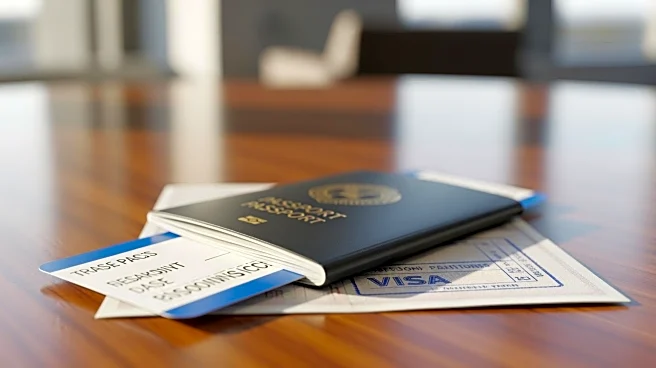What's Happening?
Celebrity chef Gordon Ramsay has revealed that he was diagnosed with skin cancer and underwent surgery to remove basal cell carcinoma from his jawline. Ramsay shared the news on social media, posting images of his bandages and stitches, and humorously assured followers that the procedure was not cosmetic. He emphasized the importance of sunscreen, urging the public to use it regularly. Ramsay joins other celebrities like Khloe Kardashian and Hugh Jackman who have publicly shared their experiences with skin cancer. The World Health Organization reported over 1.5 million new cases of skin cancer globally in 2022, highlighting the prevalence of the disease.
Why It's Important?
Ramsay's announcement brings attention to the critical issue of skin cancer, which affects millions worldwide. His advocacy for sunscreen use is significant, especially as misinformation about its safety circulates on social media. Public health experts stress that avoiding sunscreen can increase long-term health risks, countering claims by some wellness influencers that diet or gradual sun exposure can protect against burns. Ramsay's influence may encourage more people to prioritize skin protection, potentially reducing skin cancer rates. The discussion also touches on skepticism towards sunscreen ingredients, which some claim, without evidence, may be harmful.
What's Next?
Ramsay's public disclosure may prompt further conversations about skin cancer prevention and the importance of sunscreen. As misinformation about sunscreen persists, public health campaigns may intensify efforts to educate the public on its benefits. Dermatologists and health experts are likely to continue advocating for sunscreen use, countering unfounded claims about its ingredients. Ramsay's influence could lead to increased awareness and proactive measures among his followers and the broader public.
Beyond the Headlines
The skepticism surrounding sunscreen ingredients reflects broader concerns about chemical exposure and health. This issue intersects with environmental and health advocacy, as some groups push for more natural alternatives. Ramsay's case highlights the need for clear communication from health authorities to dispel myths and promote evidence-based practices. The cultural shift towards questioning traditional health products may drive innovation in safer, more effective sunscreen formulations.









